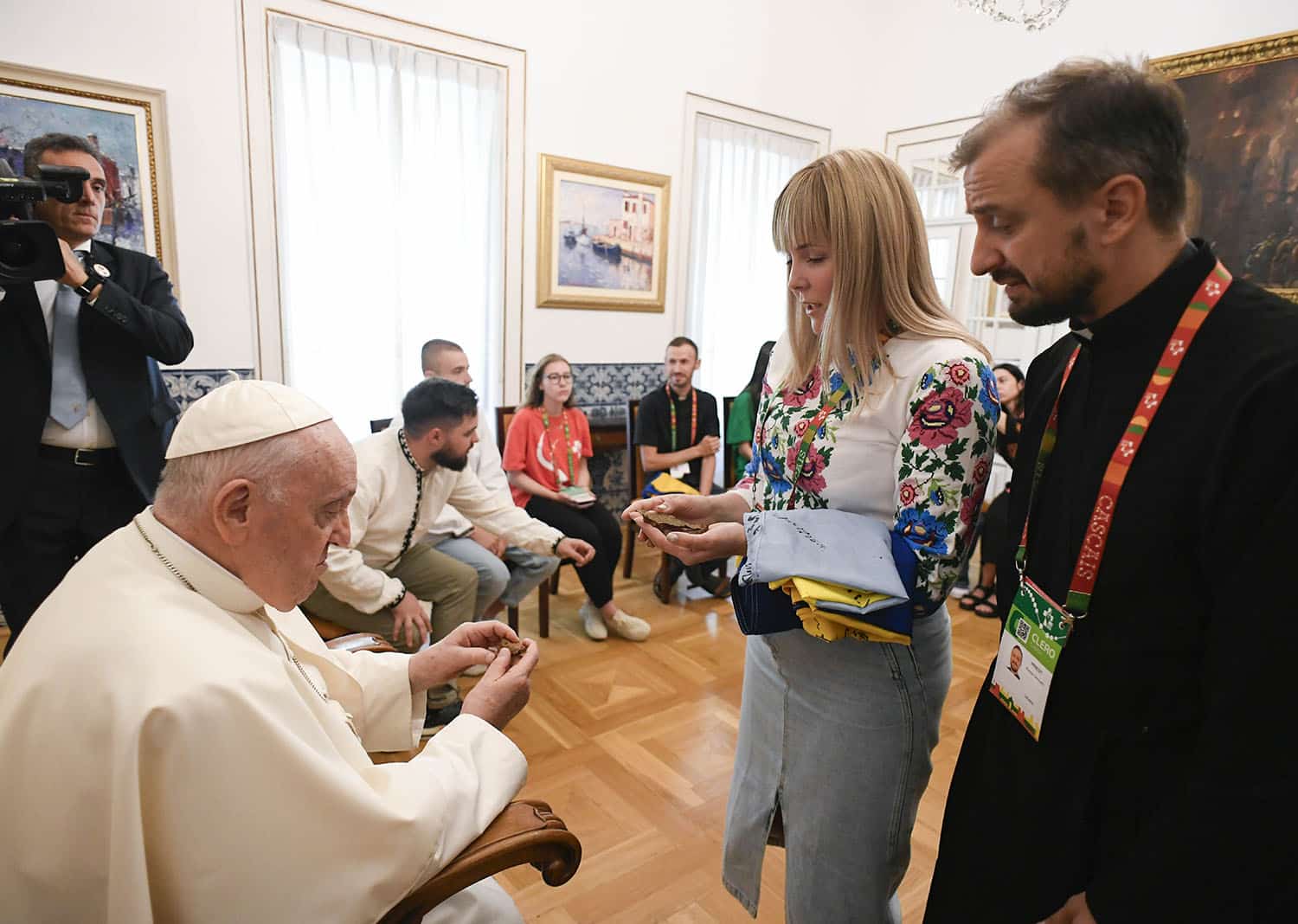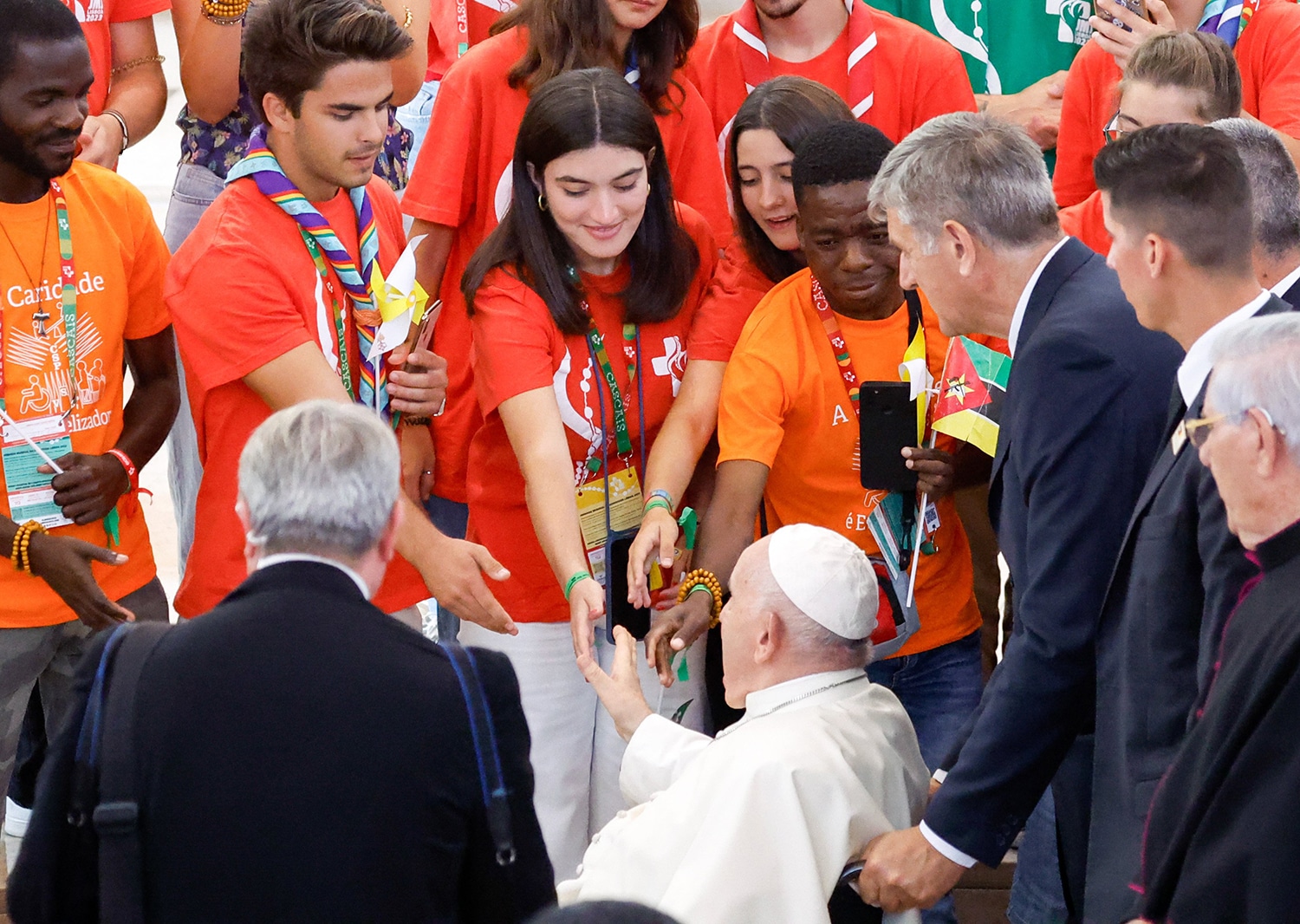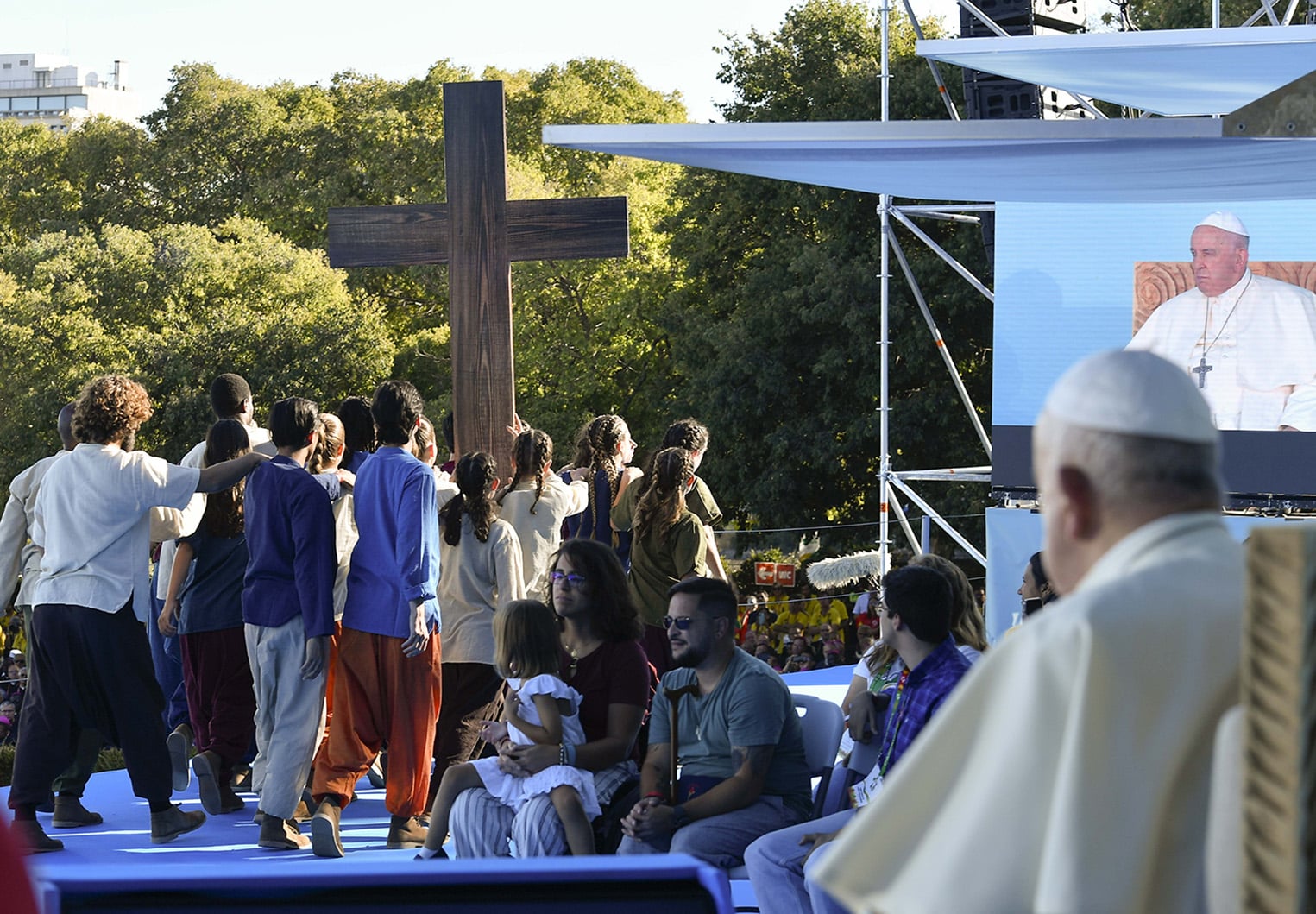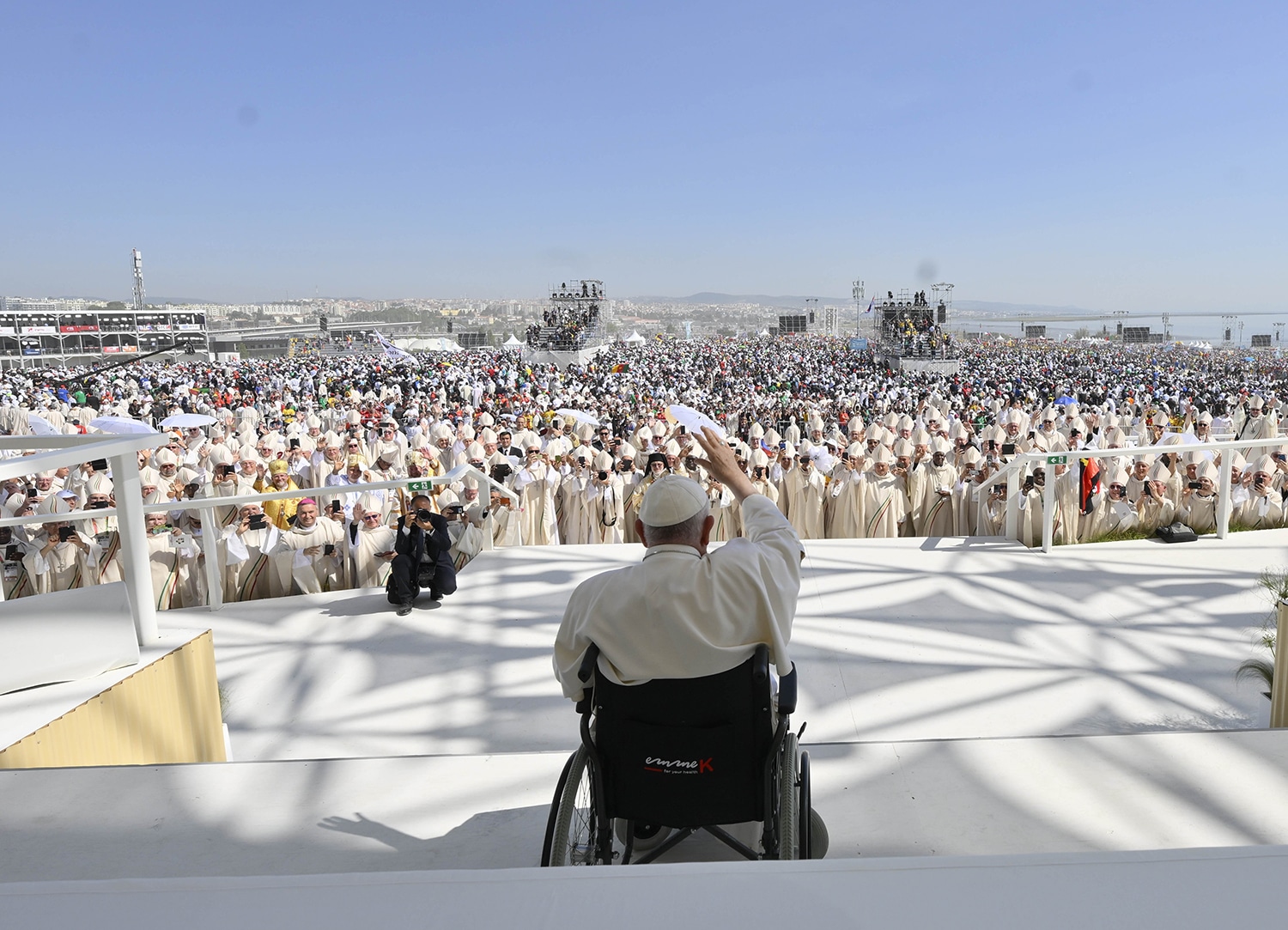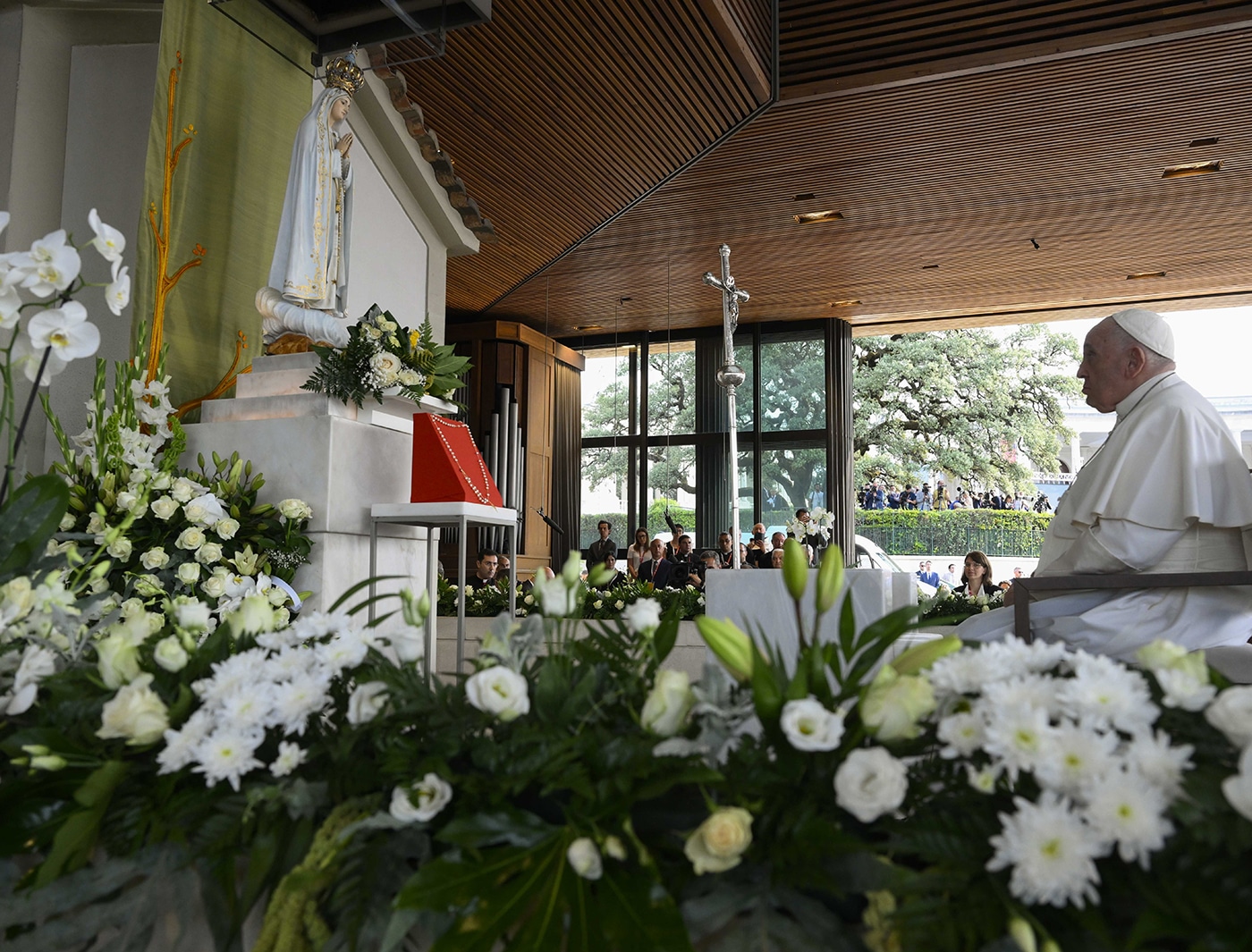LISBON, Portugal (CNS) — Fifteen World Youth Day pilgrims from Ukraine, most of whom had lost a father or other close relative in the war, had a private meeting with Pope Francis Aug. 3.
“After listening to their touching stories, the pope gave the young people a few words, demonstrating his ‘painful and prayerful’ closeness,” the Vatican press office said after the meeting in the Vatican nunciature in Lisbon.
At the end of the 30-minute meeting, the Vatican said, the pope and the pilgrims recited the Lord’s Prayer for their war-torn nation.
Speaking to Catholic News Service in Lisbon, Ukrainian Archbishop Borys Gudziak of Philadelphia said the young people told Pope Francis about “what their families have experienced, what the country has experienced” since Russia launched its large-scale attack on Ukraine in February 2022.
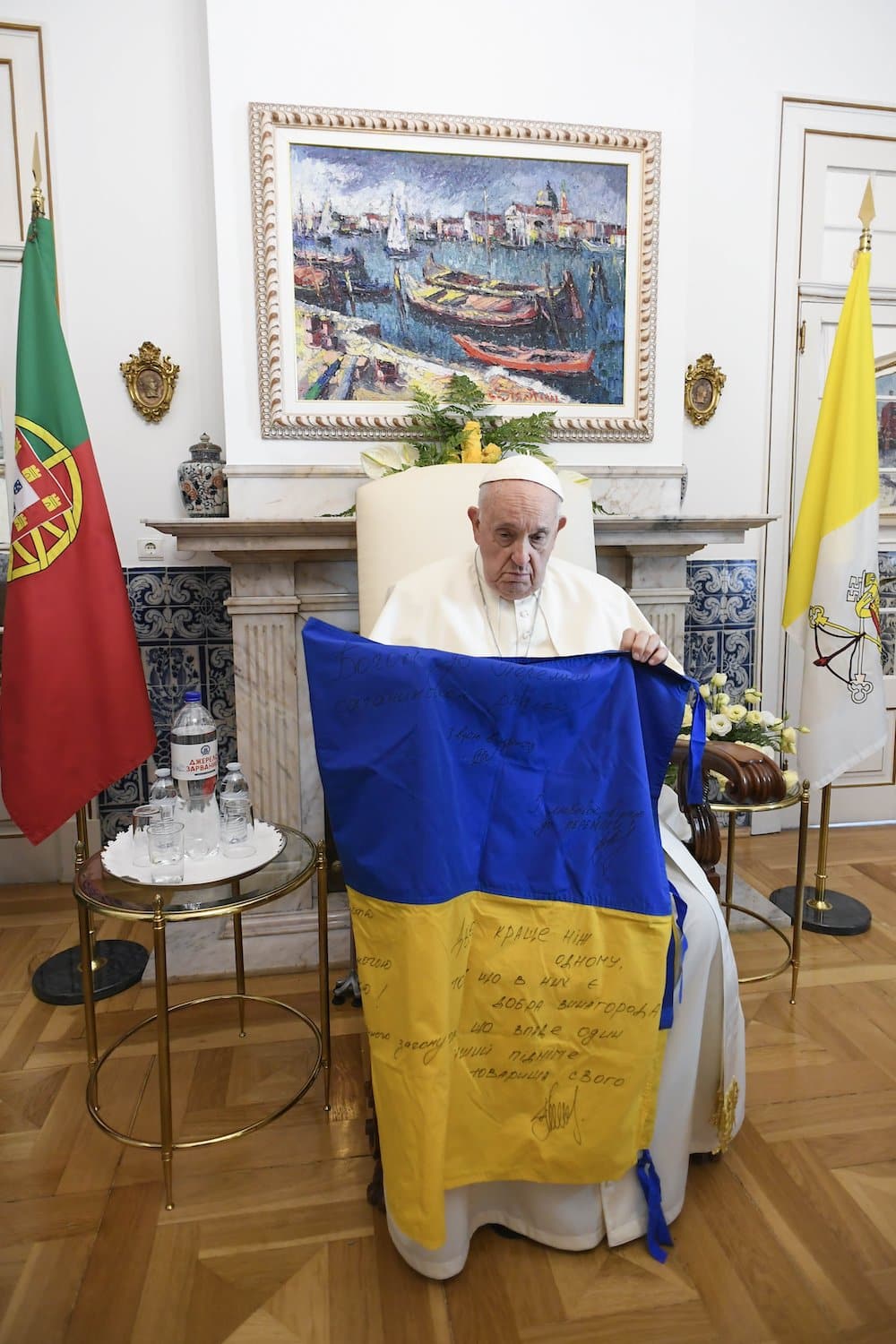
“It led the Holy Father to tears,” said the archbishop, who was not present in the nunciature but was told about the meeting by people who were there.
One of the young women in the group was introduced to the pope as the wife of an Eastern Catholic priest whose parish church was heavily damaged by Russian bombing, according to a Vatican Media video clip of the encounter. She was accompanied by two of her daughters.
Two young women, dressed in traditional Ukrainian blouses, carried bottles of water to the papal meeting. The pope asked about that.
“It’s a symbol,” said the priest accompanying the group. The church made major efforts to deliver drinking water to people in Kherson after the Nova Kakhovka dam was breached in June, flooding cities and villages and making their water undrinkable.
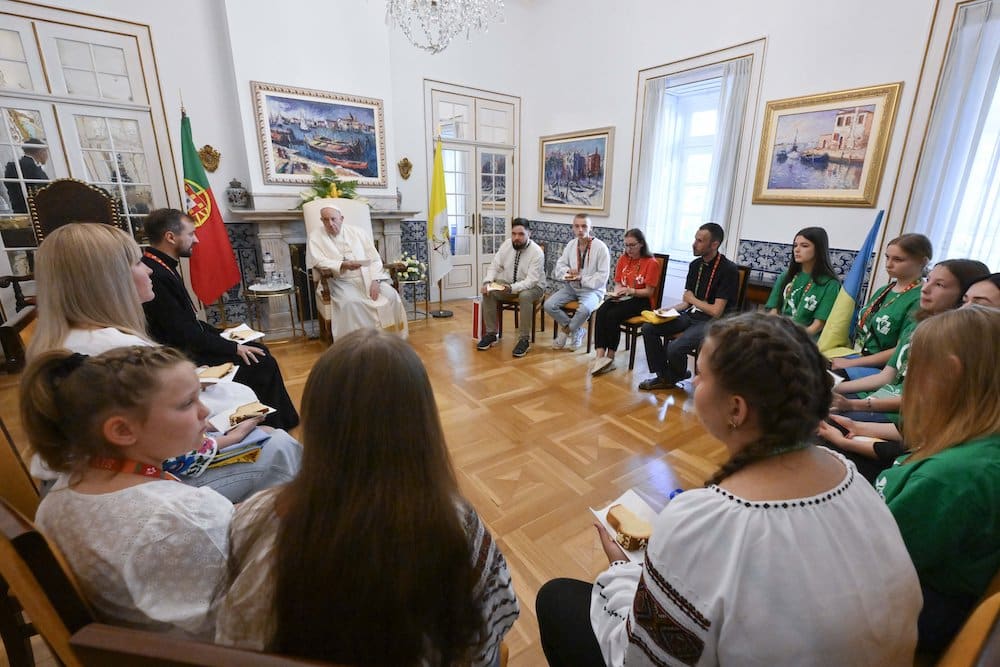
“The war in Ukraine is an experience of having death before your eyes,” Archbishop Gudziak said, “and Ukrainian young people who are here — and there are about 600 of them — are sharing that experience with the people they meet.”
Everywhere they go in Lisbon, he said, when other pilgrims see their Ukrainian flags, “they embrace the young people from Ukraine.”
The archbishop, who said he has been back to Ukraine six times since the war began, said the experience of death “makes people really savor life; that’s my experience.”
The people of Ukraine continue to take care of each other, he said. “Despite the fact that there are 6 million internally displaced persons, nobody is on the streets, you don’t see many big refugee camps, people didn’t freeze after (Russian President Vladimir) Putin knocked out 40% of the energy grid last winter, because the poor are helping the absolutely destitute.”
“So, there is death, but there’s life,” Archbishop Gudziak said.
Living in peace and comfort, he said, “we can get a little bit far from the message of the cross,” which is suffering, but also is the path to the Resurrection.
“Where there is death, where there is killing, the cross is very clear and the thoughts, the hope, the desire for resurrection becomes much more passionate,” the archbishop said. “This is what the young people in Ukraine are feeling.”
The Ukrainian pilgrims’ lives are so different from most of their peers in Lisbon, he said, but they are committed to sharing their experiences and trying “to join the joy because that is the sign of the resurrection.”
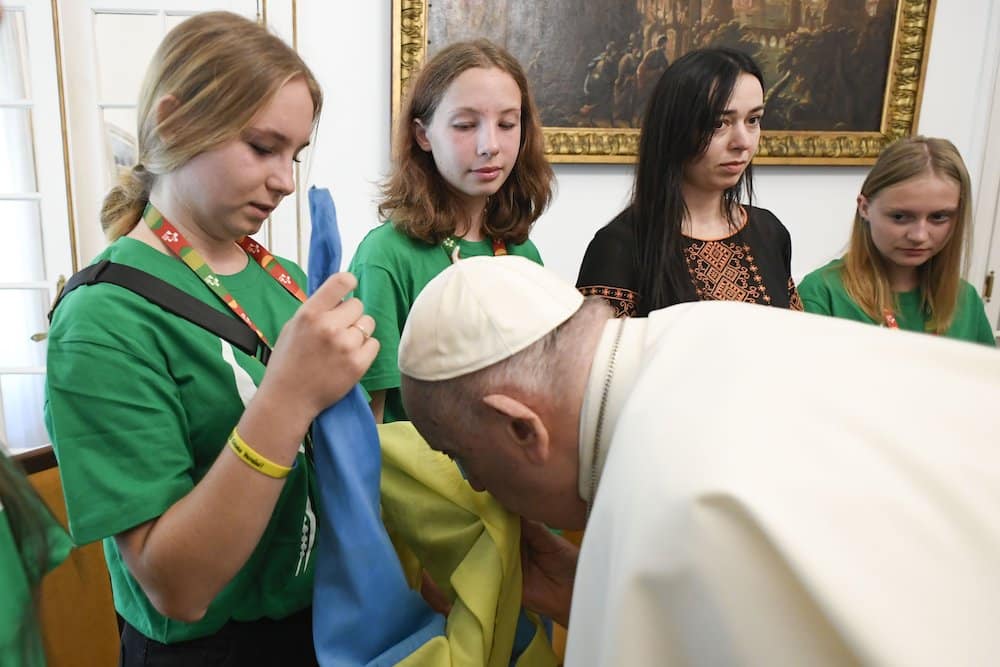
“There is life after the death that the people of Ukraine are experiencing,” the archbishop said.
A priest accompanying the pilgrims from Ukraine told him, he said, that the Ukrainian young people are experiencing World Youth Day and Lisbon “as an oasis.”
“In their torment, in the storms, in the bloodletting, in the destruction of their schools, hospitals, cities,” the archbishop continued, “they’ve come to a place where the world is embracing them. They are not alone and there’s peace and joy.”
“I think that Ukraine and the young people of Ukraine here in Lisbon have a special mission to witness to the way the Lord is guiding them through this passion,” Archbishop Gudziak said.
Contributing to this story were Robert Duncan in Lisbon and Cindy Wooden in Rome.

